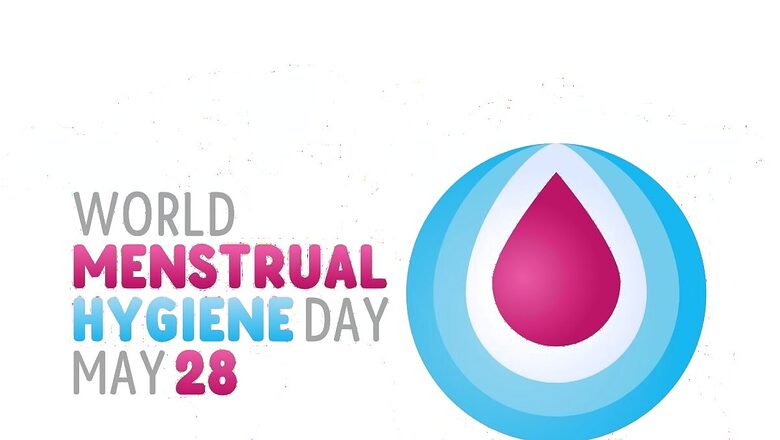
views
World Menstrual Hygiene Day, observed annually on May 28, is dedicated to raising awareness about the critical issue of menstrual hygiene management. This day highlights the significant challenges that millions of women face worldwide due to inadequate hygiene. These challenges stem from a lack of education, persistent taboos and stigma surrounding menstruation. Many women and girls lack access to clean and safe menstrual products and proper sanitation facilities, impacting their education, health and social status.
World Menstrual Hygiene Day History
Menstrual Hygiene Day was launched by the German non-profit WASH United in 2013. WASH United serves as the global coordinator and international secretariat for MH Day, leading a partner network of over 1,000 organisations.
It sets the strategy and direction for MH Day, creates and distributes campaign content, communicates through MH Day channels and represents MH Day at events.
WASH United also manages strategic partnerships, including media and fundraising, and handles monitoring and reporting. Local MH Day partners coordinate MH Day activities in their respective countries.
In 2014, Menstrual Hygiene Day reportedly started with just 155 partners and 89 pieces of media coverage. Since its inception almost a decade ago, Menstrual Hygiene Day has grown significantly in terms of reach and impact. It serves as a reminder of the importance of menstrual care and the need to address the issues faced by those who lack access to period products.
World Menstrual Hygiene Day Significance
- The significance of Menstrual Hygiene Day lies in its ability to highlight these challenges and advocate for solutions.
- The lack of adequate menstrual hygiene management (MHM) can prevent women and girls from reaching their full potential.
- This is why Menstrual Hygiene Day is such an important global campaign.
- The day brings together non-profit organisations, governments, individuals, businesses and the media to promote better menstrual health and hygiene.
- It has two main objectives: breaking the taboo around menstrual health and hygiene by raising awareness and shifting negative social norms, and urging leaders to prioritise menstrual hygiene management at all levels.
Menstrual Hygiene Day, observed on May 28th, is a vital event that underscores the importance of proper menstrual care. It highlights the difficulties faced by individuals who lack access to menstrual products and the necessity of having safe, hygienic spaces to use them. Ensuring access to these resources is crucial for anyone who menstruates and it is equally important to address and eliminate the shame and stigma associated with menstruation.
Tips For menstrual hygiene
- Use the right productsChoose menstrual products that suit your body and lifestyle. Options include sanitary pads, tampons, menstrual cups and reusable cloth pads.
- Change regularlyChange your menstrual product every 4-6 hours to prevent leaks and reduce the risk of infections.
- Maintain cleanlinessWash your hands before and after changing your menstrual product. This helps to maintain personal hygiene and prevent the spread of bacteria. Avoid using scented products which can cause irritation.
- Proper disposalDispose of used menstrual products properly. Wrap them in paper and place them in a bin. Do not flush them down the toilet as this can cause blockages and environmental harm.
- Track your cycleKeep track of your menstrual cycle using a calendar or an app. This can help you prepare for your period and manage any symptoms. You can stock the products you might need in advance.
- EducateRaise awareness about menstrual health and hygiene in your community. Talk about the importance of menstrual hygiene openly to break the taboo.
- DonateContribute to organisations that provide menstrual products to those in need. You can donate products or money to help make these products accessible.
- Promote accessEncourage local businesses to stock affordable menstrual products. Support initiatives that aim to provide free menstrual products to those who cannot afford them.
By following these tips, you can maintain good menstrual hygiene and take care of your health during your cycle. World Menstrual Hygiene Day is an opportunity to learn more about menstrual health and hygiene.




















Comments
0 comment